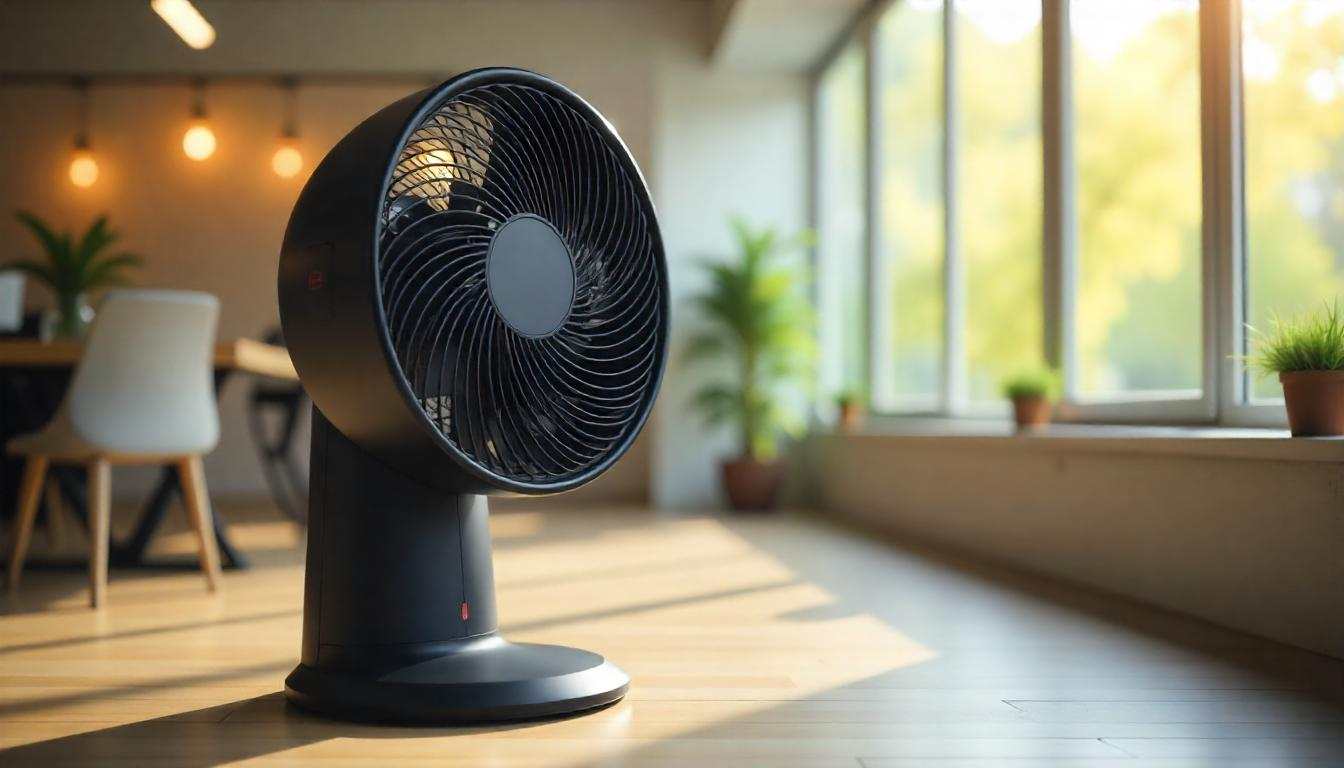Using a smart fan can lead to significant energy savings, both directly through efficient operation and indirectly by reducing the need for other heating and cooling systems. Here’s a detailed breakdown of how much energy you can save with a smart fan:
1. Direct Energy Savings
Smart fans are designed to be highly energy-efficient, often using DC motors instead of traditional AC motors. DC motors consume significantly less power while providing similar or even better performance. For example:
-
Energy Efficiency: Smart fans can be up to 75% more efficient than traditional AC fans. This means they use less electricity to produce the same amount of airflow.
-
Power Consumption: A typical smart fan with a DC motor might consume around 15-30 watts, compared to 75-100 watts for a traditional AC fan. This translates to a significant reduction in energy usage.
2. Indirect Energy Savings
Smart fans can also help reduce the load on your heating and cooling systems, leading to additional energy savings:
-
Cooling Mode: By circulating air, smart fans can make a room feel cooler, allowing you to set your air conditioner to a higher temperature. For every degree you raise the thermostat, you can save up to 3% on cooling costs.
-
Heating Mode: In winter, smart fans can reverse their direction to push warm air down from the ceiling, making the room feel warmer and reducing the need for additional heating.
3. Smart Features and Automation
Smart fans come with advanced features that further optimize energy usage:
-
Sensors and Automation: Many smart fans have motion sensors and temperature sensors that adjust the fan speed based on room occupancy and temperature. This ensures the fan only runs when needed, reducing unnecessary energy consumption.
-
Scheduling: Smart fans can be programmed to turn on or off at specific times. For example, you can set the fan to turn off when you are not at home or during the night.
-
Voice and App Control: Remote control via voice assistants or mobile apps allows you to manage the fan efficiently, ensuring it is only running when needed.
4. Energy Monitoring
Some smart fans come with energy monitoring features that allow you to track your energy usage. This helps you understand how much energy the fan is consuming and make adjustments to further reduce costs.
5. Case Studies and Research
Research and case studies have shown significant energy savings with smart fans:
-
Field Demonstrations: A study by the Center for the Built Environment (CBE) demonstrated that integrating smart ceiling fans with smart thermostats can lead to 39% compressor energy savings during the cooling season. The largest site in the study saved over $6,000 in cooling energy costs over the cooling season.
-
Laboratory Tests: Extensive full-scale laboratory tests have shown that smart fans can offset a 6°F increase in indoor air temperature while using only a fraction of the energy required by HVAC systems.
6. Long-Term Savings
While the initial cost of a smart fan might be higher than a traditional fan, the long-term energy savings can offset this cost. For example:
-
Annual Savings: Assuming a modest 15% market penetration of smart fans in California, the annual savings could reach $125 million over 15 years, with a reduction of 537 million pounds of CO2 emissions.
Conclusion
Using a smart fan can lead to significant energy savings, both directly through efficient operation and indirectly by reducing the need for other heating and cooling systems. By leveraging advanced features like DC motors, smart sensors, and automation, smart fans can help you save up to 75% on fan-related energy costs and reduce your overall energy consumption. Additionally, integrating smart fans with other smart home devices can further optimize energy usage and enhance comfort.
